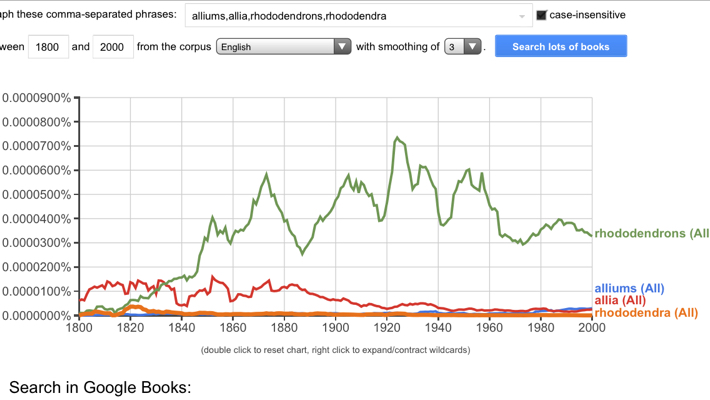When one looks at any garden, every plant has an official Latin binomial taxonomical name:
E.g. A favourite of mine, Allium hollandicum - Persian Onion
Now most of those with whom I speak call this particular plant an Allium, this is all well and good until one comes to pluralising the word at which point we divide into those who support traditional Latin pluralisation
Allia (-um endings becoming -a in plurals)
And those who support a modernisation of the terms with the far more common
Alliums (following English's standard pluralisation)
A check of Ngrams shows a once used 'Rhododendra' (The Greek pluralisation would lead you to believe that this is an historically correct plural) while its more standard plural is far more commonly used throughout the last century and a half.
On the other hand, 'Allia' was more frequently used than 'Alliums' until only the 1980s while now-a-days it has fallen at the comparative wayside.

Is there a definitive correct and incorrect pluralisation?
If - as I suspect is the case - it is all rather subjective, are they both acceptable in modern language?
Does this follow through to other species names, e.g. should Homo sapiens be pluralised to Homines sapientes as Latin might suggest?
